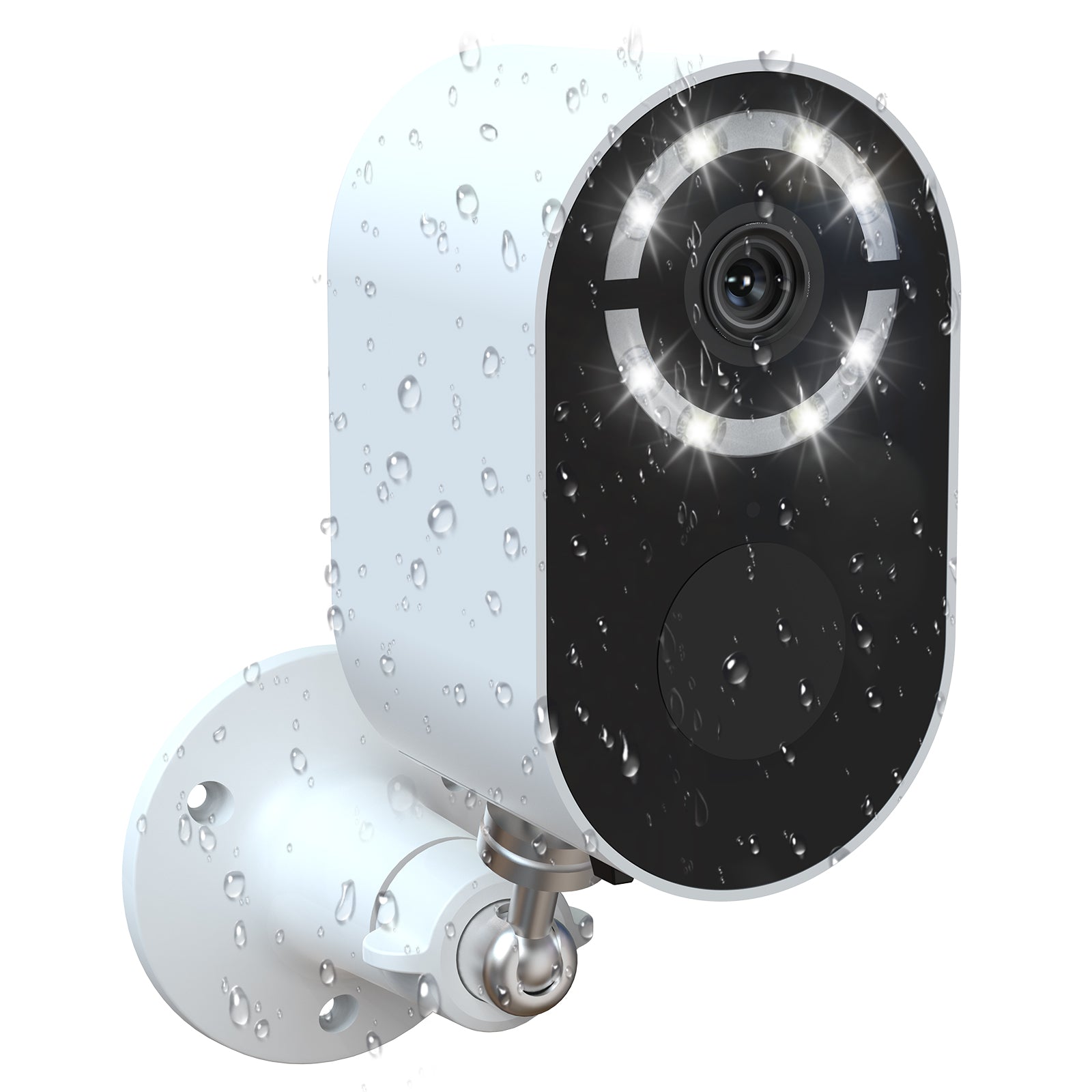Choosing a security system for your home has never been more vital—or more confusing. The big question at the center of every buying decision is clear: should you go with a wired or wireless security setup? Let’s break down the pros, cons, and key differences, so you can select the best fit for your safety needs.
Understanding Wired vs Wireless Security System Basics
A “wired vs wireless security system” comparison starts with understanding how each works. Wired security systems feature cameras and sensors that connect through physical cables. In contrast, wireless security systems send data over Wi-Fi or other wireless networks, operating largely cable-free.
- Wired systems transmit surveillance video and alerts via hard wiring.
- Wireless options use your home’s internet connection or proprietary networks.
- Some hybrid systems incorporate aspects of both.
Choosing between wireless vs wired home security typically begins with a look at your home’s layout, your DIY comfort level, and whether you plan to move in the near future.
Installation: What to Expect
Wired Security System Installation
Wired systems often require professional installation. Cables must be routed through walls or ceilings, which can mean drilling and fishing wires in hard-to-access places. While this can mean a sturdier connection, it also usually requires more upfront labor and potentially higher initial costs.
- Installation is often permanent and may involve minor construction.
- Best for homeowners, not renters.
- Rarely affected by wireless interference.
Wireless Security System Installation
Wireless security setups shine when it comes to convenience. Components simply mount or plug in, then connect to your network. Many systems allow for easy DIY installation.
- Ideal for renters and frequent movers.
- Fast setup, often done in under an hour.
- Great for adding coverage or changing camera locations as needed.
If relocation or flexible coverage is a top priority, wireless vs wired home security leans clearly in favor of wireless solutions.
Reliability and Performance
Connection Stability
A wired security camera vs wireless system’s biggest distinction is connection reliability. Wired cameras usually deliver steady video unimpeded by environmental factors. Wireless cameras, however, may experience interference from thick walls, distance from the router, or even heavy Wi-Fi usage.
- Wired: Consistent performance, no reliance on Wi-Fi.
- Wireless: Susceptible to network dropouts, but modern mesh systems minimize this.
Power Source
Wired systems draw constant power from your home’s electrical grid. Wireless devices may be battery powered or plugged in, but still require some form of periodic charging or power management.
- Wired: No risk of dead batteries, but may not function in prolonged power outages unless backed up by a generator or battery.
- Wireless: Some can run during outages if equipped with battery backup, though ongoing maintenance is needed.
Security and Vulnerability
Physical and Digital Security
When comparing a wired vs wireless security system, data security and vulnerability to tampering matter. Wired systems are less prone to hacking since footage travels over cables; tampering requires physical access. Wireless systems guard against digital threats, but could, in theory, face hacking if network security is weak.
- Wired: Minimal hacking risk, but cables can be cut by a determined intruder.
- Wireless: Secure if regularly updated and protected with strong passwords; more vulnerable to network-based attacks without proper cybersecurity.
Privacy Considerations
Wired systems tend to keep footage onsite (e.g., DVR storage), adding a privacy layer. Wireless options often upload to the cloud for remote viewing—super convenient, but data privacy hinges on provider safeguards.
- Wired: Local storage stays in your hands.
- Wireless: Offers remote access, but data securely stored by the provider.
Features and Flexibility
Customization and Expansion
Modern wireless systems often outpace their wired counterparts in expandability and integration with smart home tech. Want to add more cameras or sensors? That’s usually hassle-free and quick with wireless. Wired setups often need extra cables run, limiting add-on potential.
- Wireless: Modular, easy to upgrade or expand.
- Wired: Expanding coverage means more wiring.
Smart Features
Wireless systems increasingly come loaded with advanced features:
- Remote arming/disarming via smartphone.
- Live video streams and instant alerts.
- Voice control via smart speakers.
Some wired systems offer these perks, but they’re less common and can be more complex to configure.
Cost Considerations
Upfront and Long-Term Expenses
Evaluating wireless vs wired home security should include both installation and ongoing costs. Wired systems usually cost more up front due to professional setup and cabling. However, they often have lower ongoing fees, as many store footage locally.
Wireless installations can be cheaper, especially for DIYers. Be mindful, though: cloud storage and smart features may have subscription fees.
- Wired: Higher install cost, lower maintenance.
- Wireless: Lower initial cost; may require ongoing subscription for full functionality.
Maintenance and Servicing
Wired cameras typically call for less hands-on maintenance, aside from occasionally checking connections. Wireless devices may need battery changes and more regular firmware updates to maintain security.
- Wireless: Watch battery life and keep software current.
- Wired: Once installed, needs little upkeep.
Appearance and Impact on Your Home
Wired System Visibility
Installing visible cables and large hardware may impact your home’s appearance. While some opt for a professional, discreet installation, others may find visible wires and drilled holes off-putting, particularly in finished or historic homes.
Wireless System Aesthetics
Wireless security systems are designed with renters, condo owners, and those concerned about looks in mind. Many offer sleek, minimalist hardware that blends neatly into your environment—with no wires to hide.
- Wireless: Minimal impact, portable.
- Wired: More permanent, can be less discreet.
Which Is Right For You?
Deciding between a wired vs wireless security system hinges on your priorities. If you value rock-solid reliability, don’t plan to move, and can accommodate some upfront disruption, a wired solution is dependable and robust. If flexibility, easy setup, and advanced features matter most, a wireless system is likely the better option.
Consider these guiding questions:
- Are you renting or likely to move soon?
- Is fast DIY installation important?
- Do you need extensive camera coverage or complex monitoring?
- Is ongoing access to the cloud and mobile monitoring a necessity?
Your answers will point you in the right direction.
Pros and Cons Summary
Here’s a quick rundown to recap:
Wired Security System Pros:
- Reliable, stable connection.
- Superior for large homes or many cameras.
- Difficult to hack.
- Little ongoing maintenance.
Cons:
- Harder and costlier to install.
- Not easily moved or expanded.
- Visible wires may affect aesthetics.
Wireless Security System Pros:
- Fast, easy installation.
- Flexible and portable.
- Advanced features and remote access.
- Easy to scale and update.
Cons:
- Relies on Wi-Fi and battery power.
- Can require more maintenance.
- Vulnerable to digital outages or cyber threats if secured poorly.
Conclusion
Exploring a wired vs wireless security system protects your home and offers peace of mind. By considering your home, budget, and future plans, you can install security tailored to your lifestyle. Ready to take the next step toward a safer home? Start by evaluating your top priorities today.


Home Security Beginner's Guide: Why Your Home Needs a Security System
Home Security Trends 2025: What the Future Holds for Safer Homes